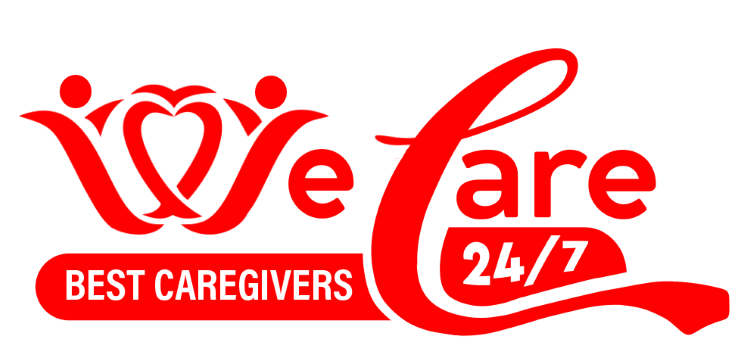How to Plan Your Disabled Child’s Legal & Financial Future in NJ

Securing a Bright Future: Comprehensive Planning for Your Disabled Loved One in New Jersey
As parents and caregivers, your dedication to ensuring the well-being of a child with disabilities is profound. The journey involves countless moments of joy, growth, and unwavering support. Beyond daily care, a significant concern often looms large: how do you secure their legal and financial future, especially when you may no longer be able to provide direct care? For families in New Jersey, understanding the specific resources and regulations available is paramount.
This article provides a comprehensive guide to navigating the complex landscape of legal and financial planning for individuals with disabilities in the Garden State. We aim to offer clear, actionable insights to empower you in building a secure and fulfilling future for your loved one.
Understanding the Landscape: Key Considerations in New Jersey
Planning for a disabled child’s future in New Jersey involves more than just setting aside funds. It requires a nuanced understanding of how various legal instruments, state benefits, and care services interact. The primary goal is often to provide financial stability without jeopardizing eligibility for essential public assistance programs like Medicaid (NJ FamilyCare) and Supplemental Security Income (SSI).
New Jersey offers a robust, yet sometimes intricate, system of support. Familiarizing yourself with these foundational elements will lay the groundwork for effective long-term planning.
Financial Planning Foundations for Long-Term Security
Strategic financial planning is fundamental to ensuring your loved one’s future needs are met. This involves specific tools designed to protect assets while preserving eligibility for vital government benefits.
Special Needs Trusts (SNTs)
Special Needs Trusts, also known as Supplemental Needs Trusts, are sophisticated legal tools designed to hold assets for the benefit of a person with a disability without disqualifying them from means-tested government benefits. These trusts pay for expenses that are supplemental to basic needs covered by programs like SSI and Medicaid, such as therapies, educational expenses, vacations, and personal care items.
There are two primary types of SNTs:
- Third-Party Special Needs Trusts: These are established and funded by someone other than the disabled individual, such as parents, grandparents, or other relatives, using their own assets. Assets placed in a Third-Party SNT are not considered the beneficiary’s property for benefit eligibility purposes, and importantly, they are not subject to Medicaid payback upon the beneficiary’s passing. This is often the preferred option when possible, as it offers greater flexibility and protection.
- First-Party Special Needs Trusts (Self-Settled SNTs): These trusts are funded with the disabled individual’s own assets, typically from an inheritance, a personal injury settlement, or accumulated savings. While these trusts also preserve benefit eligibility, they are subject to a Medicaid payback provision. Upon the beneficiary’s death, any remaining funds in the trust must first be used to reimburse the state for Medicaid benefits received during their lifetime.
Consulting with an attorney experienced in special needs planning in New Jersey is vital to determine which type of SNT is appropriate for your family’s unique situation and to ensure it is drafted correctly according to state and federal laws.
ABLE Accounts (Achieving a Better Life Experience)
ABLE accounts offer another powerful tool for financial planning, providing a tax-advantaged savings and investment account for individuals with disabilities. Established under federal law and implemented by states like New Jersey, these accounts allow eligible individuals to save money without jeopardizing their eligibility for SSI and Medicaid.
Key features of ABLE accounts in New Jersey:
- Eligibility: The individual must have developed their disability before age 26 and be receiving SSI or Social Security Disability Insurance (SSDI), or obtain a disability certification.
- Contribution Limits: Annual contributions are currently capped at the federal gift tax exclusion amount (e.g., $18,000 in 2024), though individuals who work may contribute more.
- Asset Protection: Balances up to $100,000 are disregarded for SSI purposes. Funds held in an ABLE account above $100,000 count against the SSI resource limit, but the account still maintains Medicaid eligibility regardless of the amount.
- Qualified Disability Expenses: Funds can be used for a wide range of “qualified disability expenses” that improve health, independence, or quality of life, including housing, transportation, education, healthcare, employment training, and personal support services.
- Medicaid Payback: Similar to First-Party SNTs, ABLE accounts are subject to Medicaid payback upon the beneficiary’s death.
ABLE accounts are often a complementary tool to an SNT. An SNT can hold larger sums and offer more complex distribution rules, while an ABLE account provides immediate access to funds for qualified expenses with relative simplicity. Many families utilize both to create a robust financial safety net.
Navigating Legal Frameworks: Guardianship, Supported Decision-Making, and Letters of Intent
Beyond financial planning, addressing legal aspects of your loved one’s future autonomy and care is paramount, especially as they approach adulthood.
Guardianship vs. Supported Decision-Making
Once an individual with disabilities turns 18, they are legally considered an adult, regardless of their cognitive abilities. This means they gain the right to make their own decisions about finances, healthcare, and living arrangements. If a person is unable to make these decisions for themselves, a legal framework may be necessary.
- Guardianship: In New Jersey, guardianship is a legal process where a court appoints an individual (the guardian) to make decisions for another person (the ward) who has been found incapacitated. Guardianship can be full (covering all aspects of a person’s life) or limited (specific areas like medical decisions). While sometimes necessary, guardianship removes an individual’s legal rights and should be considered a last resort.
- Supported Decision-Making (SDM): SDM is a growing alternative to guardianship, particularly favored in New Jersey’s progressive approach to disability rights. SDM allows individuals with disabilities to retain their decision-making capacity while receiving support from trusted advisors (e.g., family, friends, professionals). These supporters help the individual understand their options, communicate their choices, and make informed decisions, without taking away their legal rights.
Exploring SDM options before pursuing guardianship is advisable. New Jersey’s Division of Developmental Disabilities (DDD) and disability advocacy groups can provide resources on SDM agreements.
Letters of Intent
A Letter of Intent (LOI) is not a legally binding document like a will or trust, but it is an essential companion to your legal and financial plans. It serves as a detailed, living document that communicates your wishes, values, and practical information about your loved one’s care.
What to include in a Letter of Intent:
- Personal Information: Daily routines, preferences (food, activities, sleep), communication methods, friendships.
- Medical Information: Doctors, medications, allergies, health history, emergency contacts, preferred hospitals.
- Educational/Vocational Information: Schools, therapists, employment history, future aspirations.
- Social and Behavioral Information: Hobbies, interests, spiritual practices, triggers for behavioral issues and strategies for de-escalation.
- Financial Details: Location of important documents, bank accounts, SNT/ABLE account information, benefit details (SSI, Medicaid).
- Residential Information: Current living situation, desired future living arrangements, preferred caregivers.
- Legal Information: Location of wills, trusts, guardianship papers.
- Contact Information: Names and numbers of family members, friends, and professionals involved in their care.
The LOI acts as a blueprint for future caregivers, ensuring continuity of care and respecting your loved one’s unique personality and needs. It should be reviewed and updated regularly.
Navigating New Jersey’s Public Benefits and Resources
New Jersey offers a variety of state and federal programs that provide critical support to individuals with disabilities. Understanding how to access and maintain eligibility for these programs is a cornerstone of long-term planning.
Medicaid (NJ FamilyCare) and Supplemental Security Income (SSI)
These two programs are foundational for many individuals with disabilities.
- Supplemental Security Income (SSI): A federal program administered by the Social Security Administration, SSI provides a monthly cash benefit to aged, blind, and disabled individuals with limited income and resources. For 2024, the federal benefit rate for an individual is $943, but this can vary based on living arrangements and other income.
- Medicaid (NJ FamilyCare): New Jersey’s Medicaid program provides comprehensive health insurance to eligible low-income individuals, including those with disabilities. It covers a wide range of medical services, including doctor visits, hospital care, prescription drugs, and long-term services and supports (LTSS). Eligibility is generally tied to income and resource limits, which is why proper financial planning with SNTs and ABLE accounts is vital.
It is important to note that while SSI has specific income and resource limits, enrollment in certain Medicaid waiver programs in New Jersey can allow individuals to exceed typical Medicaid income limits while maintaining health coverage.
Division of Developmental Disabilities (DDD) in New Jersey
The New Jersey Division of Developmental Disabilities (DDD), part of the Department of Human Services, is a critical resource for individuals with intellectual and developmental disabilities. DDD provides funding and support for a wide array of services designed to promote independence, inclusion, and a high quality of life.
Services typically funded by DDD include:
- Residential Services: Group homes, supervised apartments, supportive living arrangements.
- Day Programs: Employment services, day habilitation, prevocational training.
- Community Supports: Personal care assistance, transportation, recreational activities.
- Support Coordination: A dedicated support coordinator helps individuals and families navigate the DDD system, develop an Individualized Service Plan (ISP), and connect with services.
Eligibility for DDD services typically requires a diagnosis of an intellectual or developmental disability that originated before age 22 and substantially limits major life activities. The waiting list for certain DDD services, particularly residential placements, can be extensive, making early application and engagement with the division crucial. Families should register their loved one with DDD and complete the functional assessment process to determine eligibility for services.
You can find more information and apply for DDD services through the New Jersey Department of Human Services, Division of Developmental Disabilities website.
Department of Human Services (DHS) and Other State Programs
Beyond DDD, the New Jersey Department of Human Services (DHS) oversees several other divisions that may offer relevant support:
- Division of Disability Services (DDS): Acts as a central point of contact for information and referral services for individuals with disabilities of all ages. They provide resources on a wide range of topics, including housing, transportation, employment, and accessible technology.
- Division of Mental Health and Addiction Services (DMHAS): For individuals with co-occurring mental health or addiction challenges, DMHAS provides treatment and support services.
Exploring the full scope of DHS resources can help uncover additional programs and supports tailored to your loved one’s specific needs.
Assembling Your Professional Support Team
The complexities of special needs planning necessitate a team approach. Engaging experienced professionals can provide invaluable guidance and peace of mind.
- Elder Law/Special Needs Attorney: A specialized attorney is indispensable for drafting Special Needs Trusts, navigating guardianship or Supported Decision-Making agreements, and ensuring all legal documents comply with New Jersey law. They understand the nuances of public benefit eligibility.
- Financial Planner (Specializing in Special Needs): A financial advisor with expertise in special needs planning can help integrate SNTs and ABLE accounts into your broader financial strategy, including retirement planning and wealth transfer.
- Care Managers/Support Coordinators: These professionals, often available through DDD or private agencies, help navigate the service delivery system, identify appropriate programs, and coordinate care services. They can be particularly helpful for families of seniors who are researching in-home care options for their aging parents, but are also relevant for adult children with disabilities.
- Tax Advisor: A tax professional can advise on the tax implications of trusts, ABLE accounts, and other financial arrangements.
- Home Care Agency (Like WeCare Home Caregivers): As your loved one ages, or if additional support is needed, a reputable home care agency can provide essential services. This includes personal care, companionship, respite care for family caregivers, and even skilled nursing care, all within the familiar comfort of their New Jersey home. These services can be funded through private pay, long-term care insurance, or in some cases, certain waiver programs.
Building this team ensures that all aspects of your loved one’s future are addressed comprehensively, from legal protections to daily support needs.
Regular Review and Adaptation
Life is dynamic, and your planning documents should be too. Laws, regulations, your loved one’s needs, and your family’s financial situation will evolve over time. It is strongly recommended to review your plans with your professional team every 3-5 years, or whenever there’s a significant life event (e.g., diagnosis change, inheritance, death of a parent/caregiver, changes in state benefits).
Begin Today: A Step Towards Peace of Mind
The prospect of planning for a disabled child’s long-term legal and financial future in New Jersey can feel overwhelming. However, by breaking it down into manageable steps and leveraging the expertise of dedicated professionals, you can create a robust plan that provides security, dignity, and a high quality of life for your loved one.
Remember, this process is an expression of your enduring love and commitment. By taking these proactive steps today, you are laying the groundwork for a stable and fulfilling future, offering profound peace of mind for everyone involved. For families seeking reliable in-home care support in New Jersey, WeCare Home Caregivers is here to assist, providing compassionate and professional services tailored to unique needs, allowing you to focus on the broader planning initiatives with confidence.



